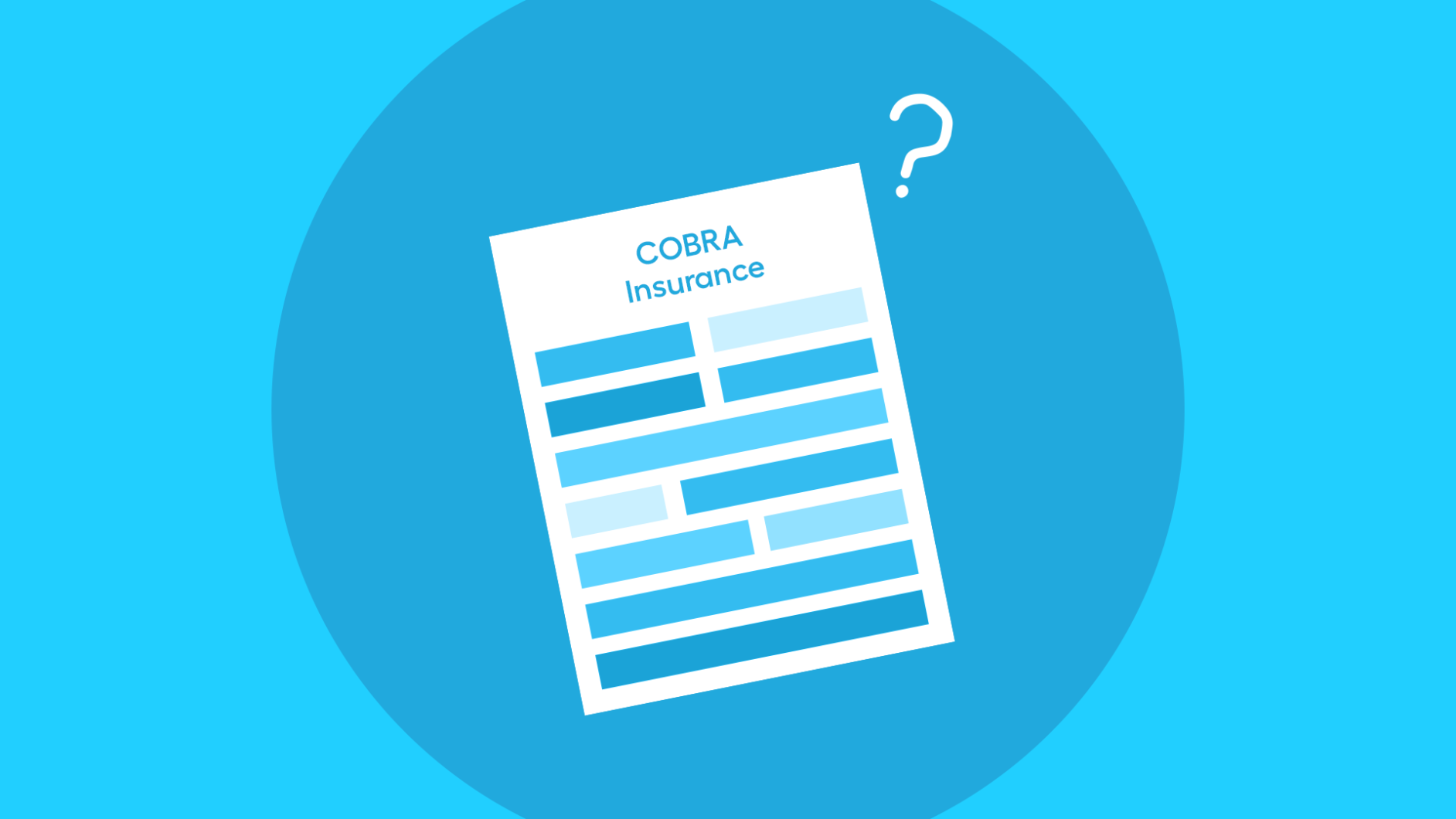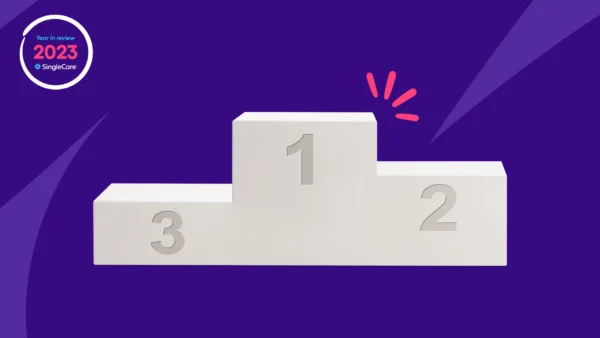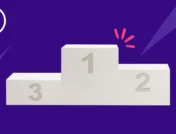“COBRA” may evoke images of a dangerous snake, but it’s actually a law to help people who’ve lost their jobs or seen their hours reduced keep their health insurance. It’s called COBRA because it’s named for the Consolidated Omnibus Budget Reconciliation Act of 1985.
As of 2018, 49% of Americans received their insurance as part of a group health plan through their employer. If those people lose their jobs or see their work hours reduced from full-time to part-time with no health benefits—as has happened on a mass scale throughout the COVID pandemic—it can become a tricky situation. That’s where COBRA steps in. It lets people stay on the group plan temporarily while they find another means of health insurance coverage.
While that sounds like a good option, COBRA insurance is typically more expensive than the plan for active employees and isn’t always the most affordable option. However, it’s there to protect employees who have no other choices in the short-term.
RELATED: What is short-term health insurance?
What is COBRA insurance?
COBRA is a law regulated by the federal government and the U.S. Department of Labor, but many states have their own laws that are similar. Essentially, having COBRA insurance—also called COBRA continuation coverage—means that you and your family are allowed to stay on your employer’s group health plan for a limited time after your employment ends or changes.
But not everyone who loses his or her job is eligible for COBRA coverage. The federal law only applies to businesses with 20 or more employees. Some states’ COBRA-like laws cover smaller businesses. These laws are often referred to as “mini-COBRAs.”
To be eligible for COBRA, you must also have experienced a qualifying event, which includes termination as an employee for anything other than gross misconduct or reduction of hours. According to the Department of Labor, the spouse or dependent children of covered employees are eligible for COBRA in the following qualifying events:
- divorce or legal separation from the covered employee
- death of the covered employee
- dependent child turns 26 and is no longer eligible for the covered employee’s group health plan under the Affordable Care Act (ACA)
In order to qualify, the covered employee (or his or her spouse and dependent children) must have been enrolled in the company’s group health insurance plan the day before the qualifying event happened, and the plan must continue to be in effect for active employees after the qualifying event.
How do I apply for COBRA?
After a qualifying event, the employer must let qualified beneficiaries know about their COBRA eligibility, and either the employer or the covered employee must let the insurance company administering the group plan know about the event.
It’s the employer’s responsibility to notify the plan within 30 days for the following qualifying events:
- covered employee’s termination
- reduction in the covered employee’s hours of employment
- covered employee’s death
- covered employee becomes eligible for Medicare
- private-sector company goes bankrupt
The covered employee or another qualified beneficiary is responsible for notifying the plan if the qualifying event is a divorce or legal separation, or if a child loses his or her dependent status under the group plan.
After the plan has been notified, the insurance company is required to give qualified beneficiaries a notice explaining their rights under COBRA and how to go about signing up for continuation coverage. This election notice must be provided to qualified beneficiaries within 14 days. After receiving the election notice, you’ll have 60 days to decide whether or not to choose COBRA coverage.
Each qualified beneficiary covered by the group plan can make their own decision regarding COBRA insurance, and if any beneficiary waives the COBRA coverage, they are allowed to revoke that waiver and opt for COBRA coverage later, as long as they do so within the same 60-day election period.
How long does COBRA last?
The length of time COBRA coverage lasts depends on the qualifying event and the company’s group plan. The Consolidated Omnibus Budget Reconciliation Act requires that continuing coverage be available for either 18 or 36 months, but some group health plans may provide coverage for longer than that.
If you lose your job or see a reduction in hours of employment, you’re entitled to COBRA coverage for 18 months. Other qualifying events (other than Medicare eligibility) result in you being entitled to coverage for 36 months.
However, if your coverage is capped at 18 months, you may be eligible for an extension in coverage in two instances: First, if you are disabled and meet certain requirements, in which case the coverage for all qualified beneficiaries may be extended for 11 months. Second, if your qualifying event renders you ineligible for coverage again. Such events include the death of the covered employee, the divorce of the covered employee, the covered employee becoming eligible for Medicare, or a child losing dependent status under the group plan. In these cases, COBRA coverage may be extended another 18 months to a total of 36 months.
Medicare and COBRA
When a covered employee becomes eligible for Medicare less than 18 months before the qualifying event, continuing coverage for the covered employee’s spouse and dependent children can last up to 36 months, minus the number of months the covered employee had been eligible for Medicare. For example, if the covered employee was eligible for Medicare for 10 months before the qualifying event, other qualified beneficiaries on the group health plan would be entitled to COBRA coverage for 26 months.
It’s possible, and sometimes recommended, to have both COBRA and Medicare coverage simultaneously. For more information on how Medicare eligibility affects COBRA coverage, the Department of Labor’s Benefits Security Administration can be reached at askebsa.dol.gov or by phone at 1-866-444-3272.
How much does COBRA cost?
In almost all cases, COBRA coverage is more expensive than the same coverage would be for active employees.
Under the Affordable Care Act, job-based health plans are required to provide “minimum coverage” or better. Minimum coverage is defined as a plan that pays “at least 60% of the total cost of medical services for a standard population,” and includes “substantial coverage of physician and inpatient hospital services.” That leaves covered employees to pay the other 40% percent.
Typically, under COBRA, you’ll no longer have your employer paying its 60% share, which means you could be on the hook for the whole cost of the insurance policy. In fact, under COBRA law the insurance company is allowed to charge up to 102% of the cost of a similar plan for an active employee (the extra 2% goes to administrative costs). And if you take the 11-month coverage extension for disability, the insurance company is allowed to charge up to 150% of the plan’s regular cost for those 11 months.
All told, it means that health insurance premiums—the amount paid to the insurance company on a regular basis—can be very expensive under COBRA. And even with COBRA, beneficiaries still have to pay the plan’s regular copays for doctor visits and yearly deductible (the amount the insured party has to pay before the insurance kicks in). The costs you pay could even go up if the cost of the group plan goes up.
COBRA law stipulates that the insurance company has to allow you to make premium payments on a monthly basis if you choose. Some plans may also allow you to make weekly or quarterly payments. Qualified beneficiaries usually have to make their first premium payment within 45 days of starting on COBRA insurance. If you miss a payment, the insurance company must give you a 30-day grace period in which to make any outstanding payments, but after that, if payment still isn’t made, you could lose all your COBRA benefits.
COBRA alternatives
Given the expensive nature of COBRA insurance, the Department of Labor recommends that people who have recently experienced a qualifying event look for more affordable insurance through different means. Here are a few coverage options:
A spouse’s health plan: If your family loses your employer-based health coverage, check to see if your spouse’s employer offers health insurance. This will most likely be less expensive than continuing your existing coverage with COBRA.
Another group plan: If you lose your job-based health insurance, you, your spouse, or your dependents may be allowed to enroll in another group health plan during a Special Enrollment Period. That means you don’t have to wait until the next open season for enrollment.
The Health Insurance Marketplace: A qualifying event also allows you to use a special enrollment period to enroll through the Health Insurance Marketplace or your state’s insurance exchange. This is where you can compare policies and see estimated premiums, deductibles, and out-of-pocket costs. You won’t necessarily have to wait until the next open enrollment period, and if you get health insurance through the Marketplace, you may be eligible for a tax credit that could lower your premiums. To apply for a Marketplace plan, visit healthcare.gov or call 1-800-318-2596.
Medicaid or Children’s Health Insurance Program (CHIP): For lower-income families and individuals who qualify, Medicaid and CHIP provide low- or no-cost health care. To see if you qualify for Medicaid, visit your state’s Medicaid website or the U.S. Department of Health and Human Services at hhs.gov. To apply for CHIP, call 1-800-318-2596 or fill out an application through the Health Insurance Marketplace.
How to save on prescriptions with or without COBRA
Regardless of whether you opt for COBRA continuing coverage or not, you can always save on prescription drugs with coupons from SingleCare. It’s free to use and you’ll find prices that may even be cheaper than your insurance copay. Start searching on singlecare.com for your medication and see what you can save.











